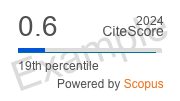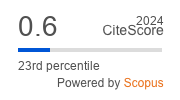Education of patients with prosthetic heart valves using Internet technologies
https://doi.org/10.29001/2073-8552-2021-36-1-158-163
Abstract
Aim. To evaluate the effectiveness of education in patients with heart valve prostheses using online technologies.
Material and Methods. Two groups of patients were examined. Patients in group 1 (n = 122) underwent the standard education program; patients in group 2 (n = 86) underwent distant education using the online technologies (video teleconferencing). The quality of life, adherence to treatment, and time in therapeutic range (TTR) of international normalized ratio (INR) were assessed.
Results. The quality of life and adherence to treatment did not differ between groups of patients at baseline. At nine-month follow-up, mental health improved by 30% in patients undergoing their education using the online technologies (p = 0.0040). Similarly, their adherence to treatment increased by 1.4 times (p = 0.0002) and TTR expanded by 20% (p = 0.014).
Conclusion. Patient education using the online technologies demonstrated its beneficial potential and represents the priority area in rehabilitation of patients after cardiac surgery.
About the Authors
E. V. GorbunovaРоссия
Dr. Sci. (Med.), Leading Research Scientist, Laboratory of Cardiac Arrhythmias and Pacing
6, Sosnoviy blvd., Kemerovo, 650002, Russian Federation
V. V. Rozhnev
Россия
Postgraduate Student
6, Sosnoviy blvd., Kemerovo, 650002, Russian Federation
A. L. Polikova
Россия
Resident Physician
6, Sosnoviy blvd., Kemerovo, 650002, Russian Federation
H. A. Peganova
Россия
Cardiologist
6, Sosnoviy blvd., Kemerovo, 650002, Russian Federation
S. A. Makarov
Россия
Dr. Sci. (Med.), Head of the Laboratory for Modeling Medical Technologies
6, Sosnoviy blvd., Kemerovo, 650002, Russian Federation
O. L. Barbarash
Россия
Dr. Sci. (Med.), Professor, Corresponding Member of the Russian Academy of Sciences, Director
6, Sosnoviy blvd., Kemerovo, 650002, Russian Federation
References
1. Biedermann J.S., van Rein N., van den Besselaar A.M., Buhre P.N., de Maat M.P., van der Meer F.J.M. et al. Impact of point-of-care international normalized ratio monitoring on quality of treatment with vitamin K antagonists in non-self-monitoring patients: A cohort study. J. Thromb. Haemost. 2016;14(4):695–703. DOI: 10.1111/jth.13272.
2. Nebieridze D.V., Kamyshova T.V., Safaryan A.S., Sargsyan V.D. Treatment adherence as an essential element of cardiovascular disorders management. Cardiovascular Therapy and Prevention. 2017;16(6):128–132 (In Russ.). DOI: 10.15829/1728-8800-2017-6-128-132.
3. Rosendaal F.R., Cannegieter S.C. Control of anticoagulation with VKAs: Оverestimation of median TTR when assessed by linear extrapolation: A comment. Thromb. Haemost. 2017;117(4):819. DOI: 10.1160/TH16-10-0795.
4. Galyavich A.S., Davydov S.V. Quality of life and adherence to the treatment of patients with essential hypertension. Kazan Medical Journal. 2001;82(3):198–202 (In Russ.).
5. Novik A.A., Ionova A.A. The study of the quality of life in medicine: handbook; ed. Yu.L. Schevchenko. Moscow: GEOTAR-MED; 2004:304 (In Russ.).
6. Konradi A.O., Polunicheva Y.V. Inadequate compliance in the treatment of arterial hypertension: causes and ways of correction. Arterial Hypertension. 2004;10(3):137–143 (In Russ.). DOI: 10.18705/1607-419X-2004-10-3-137-143.
7. Gurevich K.G. Compliance of patients receiving antihypertensive therapy. Good Clinical Praktice. 2003;(4):53–58 (In Russ.).
8. Tumanova S.A., Trishkina N.N., Gorbunova E.V., Barbarash O.L. Effectiveness of a long-term education program in patients with prosthetic heart valves. Kardiologiia. 2017; 57(3S):62–68 (In Russ.). DOI: 10.18087/cardio.2406.
9. Dillinger J.-G., Si Moussi T., Berge N., Bal Dit Sollier C., Henry P., Drouet L. Accuracy of point of care coagulometers compared to reference laboratory measurements in patients on oral anticoagulation therapy. Thromb. Res. 2016;140:66–72. DOI: 10.1016/j.thromres.2016.02.006.
10. Thompson J.L., Sundt T.M., Sarano M.E., Santrach P.J., Schaff H.V. Guidelines for self-controlling of international normalized ratio after mechanical heart valve implantation. Ann. Thorac. Surg. 2008;85(6):2046–2050.
11. Verret L., Couturier J., Rozon A., Saudrais-Janecek S., St-Onge A., Nguyen A. et al. Impact of a pharmacist-led warfarin self-management program on quality of life and anticoagulation control: A randomized trial. Pharmacotherapy. 2012;32(10):871–879. DOI: 10.1002/j.1875-9114.2012.01116.
12. Whitlock R.P., Sun J.C., Fremes S.E., Rubens F.D., Teoh K.H. Antithrombotic and thrombolytic therapy for valvular disease: Аntithrombotic therapy and prevention of thrombosis, 9th ed.: American College of Chest Physicians Evidence-Based Clinical Practice Guidelines. Chest. 2012;141(2):e576S–e600S. DOI: 10.1378/chest.11-2305.
13. Prochaska J.H., Gobel S., Keller K., Coldewey M., Ullmann A., Lamparter H. et al. Quality of oral anticoagulation with phenprocoumon in regular medical care and its potential for improvement in a telemedicine-based coagulation service-results from the prospective, multi-center, observational cohort study thrombEVAL. BMC Med. 2015;13:14. DOI: 10.1186/s12916-015-0268-9.
14. Tajer C., Ceresetto J., Bottaro F.J., Martí A., Casey M.; TERRA Trial investigators. Assessment of the quality of chronic anticoagulation control with time in therapeutic range in atrial fibrillation patients treated with vitamin K antagonists by hemostasis specialists: The TERRA Registry: Tiempo en rango en la República Argentina. Clin. Appl. Thromb. Hemost. 2017;23(5):445–453. DOI: 10.1177/1076029615623378.
15. Sawicka-Powierza J., Buczkowski K., Chlabicz S., Gugnowski Z., Powierza K., Ołtarzewska A.M. Quality control of oral anticoagulation with vitamin K antagonists in primary care patients in Poland: А multi-centre study. Kardiol. Pol. 2018;76(4):764–769. DOI: 10.5603/KP.2018.0011.
Review
For citations:
Gorbunova E.V., Rozhnev V.V., Polikova A.L., Peganova H.A., Makarov S.A., Barbarash O.L. Education of patients with prosthetic heart valves using Internet technologies. Siberian Journal of Clinical and Experimental Medicine. 2021;36(1):158-163. (In Russ.) https://doi.org/10.29001/2073-8552-2021-36-1-158-163
JATS XML





.png)





























